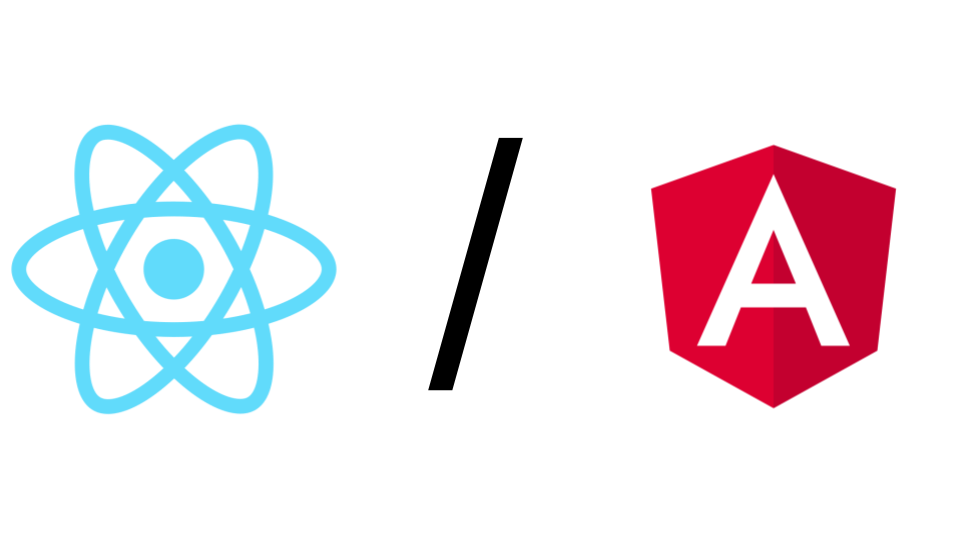React vs Angular: Which JS Framework to Select for Front-end Development
 Erma Winter
Erma Winter
Selecting the right JavaScript framework for front-end development can be a challenging task. Two of the most popular choices are React and Angular, both with unique strengths and capabilities.
In this article, we will explore the key aspects of React and Angular to determine which one suits your project requirements better. Whether you want to hire a ReactJS developer or an AngularJS developer, understanding their differences will empower you to make the best decision for your development needs.
React: The Declarative JavaScript Library
React, developed and maintained by Facebook, is a powerful JavaScript library designed to build user interfaces with ease. It follows a declarative approach, allowing developers to describe how their UI should look based on the application's current state. Some key features of React include:
Component-Based Architecture: React is built on the concept of reusable components, making it highly modular and easy to maintain.
Virtual DOM: React utilizes a virtual representation of the actual DOM, enabling efficient updates and minimizing performance bottlenecks.
JSX (JavaScript XML): JSX is a JavaScript extension that enables to write of declarative UI components with hire ReactJS developers, who enhance the readability and maintainability of the codebase.
Unidirectional Data Flow: React follows a unidirectional data flow, making it straightforward to track changes and update the UI accordingly.
Angular: The Comprehensive TypeScript Framework
Angular, developed and maintained by Google, is a complete TypeScript-based framework for building dynamic web applications. It offers a broad range of tools and features, making it suitable for complex and large-scale projects. Some key features of Angular include:
Full-Fledged Framework: Unlike React, Angular is a complete framework with built-in solutions for routing, forms, HTTP requests, and more.
Two-Way Data Binding: Angular supports two-way data binding, enabling automatic synchronization of data between the model and the view.
Dependency Injection: Hire AngularJS developers who take a dependency injection system to facilitate testing and enhance the maintainability of applications.
Directives: Angular provides powerful directives to extend HTML with custom behaviors, making it a versatile choice for manipulating the DOM.
Head-to-Head Comparison
| Aspect | React | Angular |
| Learning Curve | Low | Moderate to High |
| Project Size Support | Ideal for Small to Medium | Ideal for Large |
| Community Support | Large and Active | Large and Active |
| Rendering Performance | Excellent | Good |
| Data Binding | Unidirectional | Two-Way |
| Code Organization | Component-Based | Module-Based |
| TypeScript Support | Requires Extra Configuration | Native Support |
| Routing | Requires Additional Libraries | Built-In |
| Forms | Requires Additional Libraries | Built-In |
Which One to Choose: React or Angular?
Both React and Angular have their merits and are widely used in the industry. The decision on which one to choose depends on various factors, such as the complexity of the project, team expertise, and specific requirements. Here are some guidelines to help you decide:
Consider React If:
Your project requires a lightweight and flexible library.
You have a smaller development team with a preference for JavaScript.
You prioritize rendering performance and maintainability.
You plan to build a progressive web application or a single-page application.
Consider Angular If:
Your project is large and complex, demanding a comprehensive framework.
You prefer using TypeScript and need a robust toolset for development.
You value a fully integrated solution that includes routing and form handling.
You plan to build an enterprise-level application with extensive functionality.
Frequently Asked Questions (FAQs)
Q: What are some popular companies using React or Angular?
A: Facebook, Instagram, Airbnb, and WhatsApp are some companies that use React, while Google, Microsoft, IBM, and PayPal use Angular.Q: Can I use React and Angular together in the same project?
A: While it is possible, it is not recommended due to potential conflicts and complexities. It's better to choose one and stick to it.Q: Which framework has better performance: React or Angular?
A: React generally has better rendering performance due to its virtual DOM implementation, but Angular's performance is still quite good.Q: Is Angular difficult to learn compared to React?
A: Angular has a steeper learning curve, especially if you are new to TypeScript and dependency injection. React's simplicity makes it more beginner-friendly.Q: Are there any major differences in terms of community support?
A: Both React and Angular have large and active communities with extensive resources and support available.Q: Can I migrate from React to Angular or vice versa later in the project?
A: While it is possible, it can be a challenging and time-consuming task. It's best to choose the right framework from the start.
Conclusion
Choosing between React and Angular ultimately comes down to your project's specific needs and the expertise of your development team. React's simplicity and rendering performance make it an excellent choice for smaller projects, while Angular's comprehensive toolset and TypeScript support are well-suited for larger, complex applications. Assess your project requirements, evaluate your team's expertise, and consider the scalability of your application before making a decision.
Subscribe to my newsletter
Read articles from Erma Winter directly inside your inbox. Subscribe to the newsletter, and don't miss out.
Written by

Erma Winter
Erma Winter
Erma Winter is a senior Developer at JS Panther, the best Full Stack Web Development Company. She is extremely passionate about writing technical blogs and frequently posts on topics related to the design and development industry. She utilizes her idle time by reading fictional novels and watching her favorite TV series.